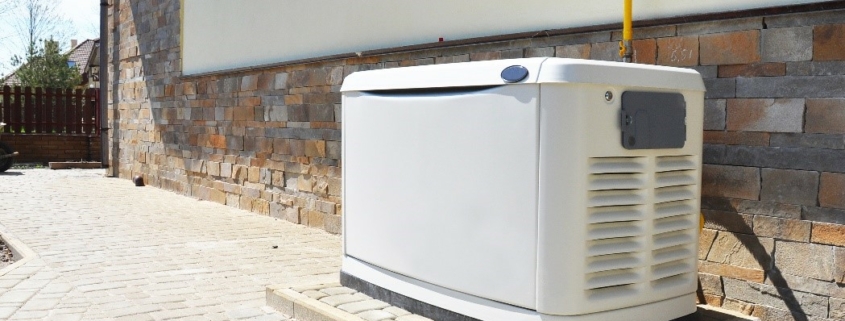Your home can be affected by a power outage at any time. While there’s no way to prevent this from happening, you can most definitely control your family’s level of preparedness. During an outage or emergency, a whole home generator is the most efficient way to ensure your family’s comfort, convenience, and safety. Let’s explore how these generators work, their advantages, and more.
How a Backup Generator Works
Within about 10 seconds, a generator will sense a power loss and automatically turn on. The power source will switch to it, supplying electricity to the circuits. Once the power returns, the generator will turn off.
The Size You Need
It’s no surprise that different homes require different sized generators. Therefore, it is crucial to know what size your home requires. Trusted will assist in selecting the best size generator depending on your home’s square footage and what appliances you need powered in the event of an outage.
How Long a Generator Can Run
If utilizing natural gas, the generator will run indefinitely. However, when using propane or diesel, your generator will only provide power for as long as the fuel allows. If a power outage lasts several days, you want to conserve energy and have fuel tanks dropped off at your home. Aside from the fuel source, emergency generators will run as long as needed.
What Are the Advantages?
- Protect Your Electronics
A strong power surge can significantly damage your appliances and electronics, potentially causing them to overheat and catch fire. By quickly restoring power, a generator helps to protect these devices. - Maintain a Comfortable Environment
In some regions, we can see temperatures reaching to over 110°F during the summer months. It could be deadly if the power went out during a heatwave. An emergency generator ensures that your indoor temperatures stay comfortable and safe for everyone. - Prevent Food Spoilage
In the event of a prolonged outage, all the perishable food items can spoil. With a generator providing power to your refrigerator and freezer, your food is unaffected by the loss of power. - Being Prepared Is Key
Invest in the perfect alternative power solution and avoid the inconveniences that result from an emergency power outage. The importance of backup generators is evident in both residential and commercial applications. You may never need to use it, but if your family is ever affected by a power outage, you will be so glad to have it. For those of us residing on the East Coast, it is safer and much more cost effective to be proactive, rather than reactive in the event of a terrible storm.
Contact Us for Your Emergency Power Requirements
Trusted Home Services in Conway, South Carolina is ready to provide excellent power solutions. Reach out to us today to schedule a free in-home assessment to see what emergency backup generator configuration will meet your needs.




FOLLOW US